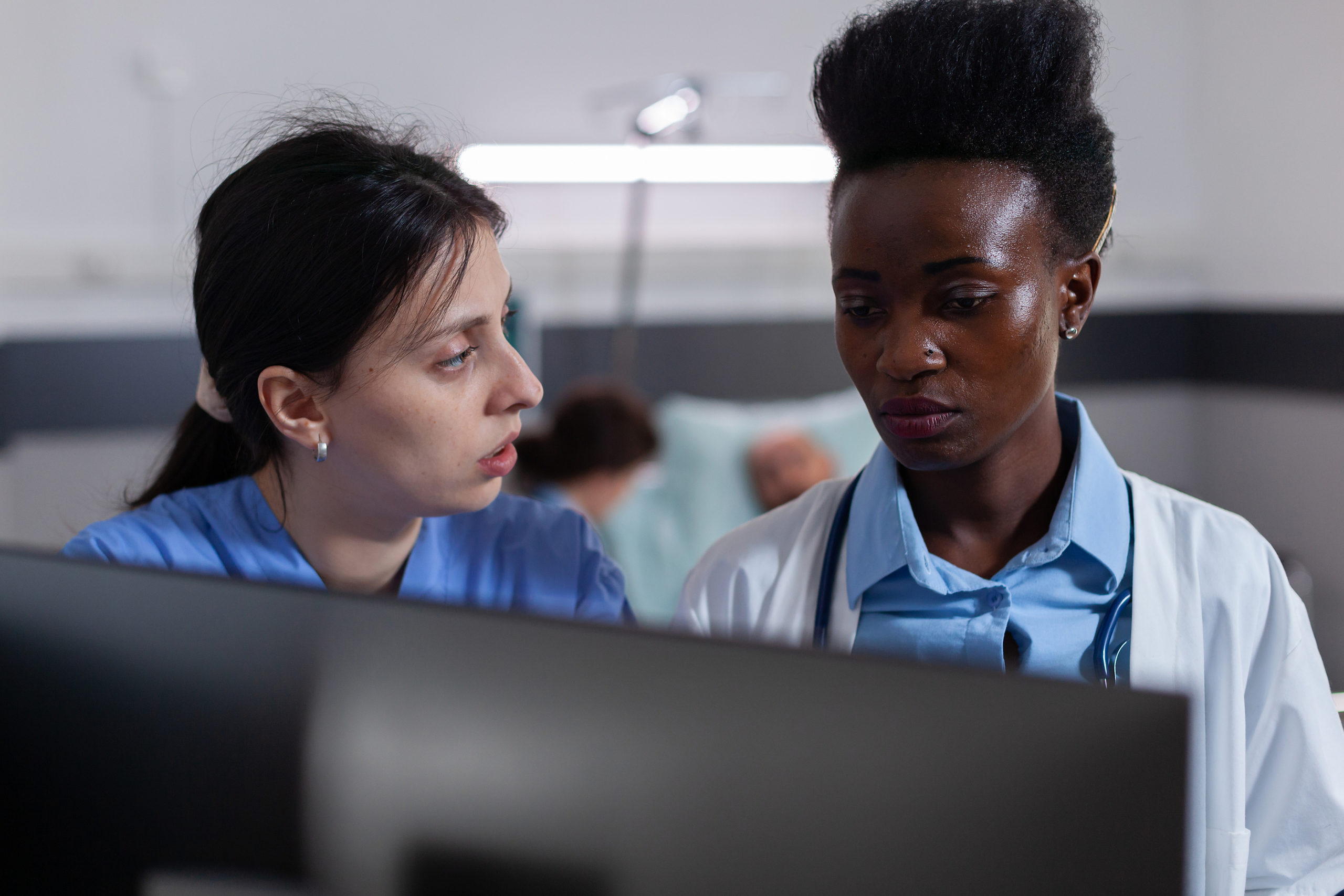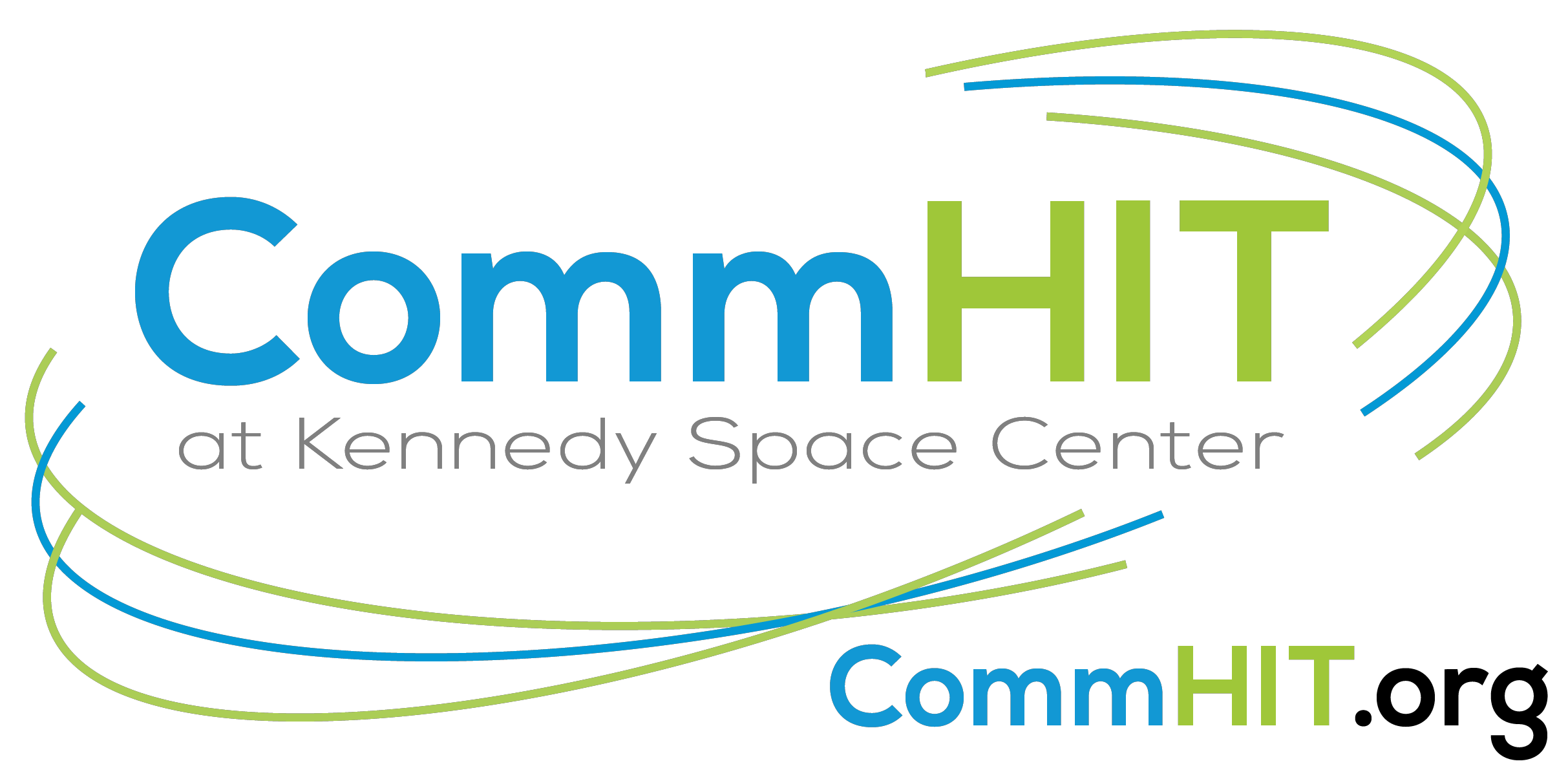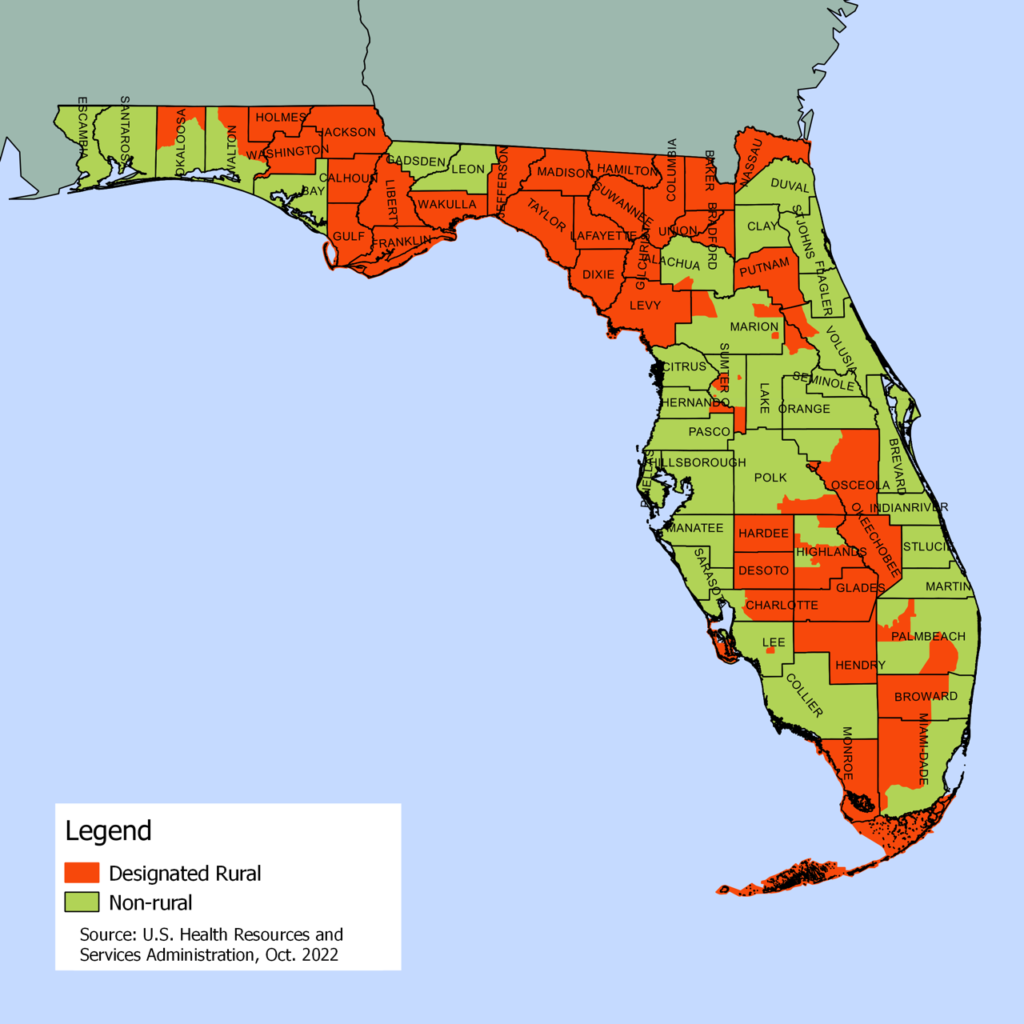
CommHIT is proud to announce that it has increased the number of skilled workers
in direct care health occupations in rural Florida
CommHIT focused on occupations that are drastically needed in almost all Florida safety net medical facilities that serve rural communities.
RRCC was CommHIT’s $2.5M program funded by the United States Department of Labor (USDOL). Through RRCC, CommHIT provided hundreds of individuals in rural Florida communities grant-funded job training, instructional services, and support to prepare them for select direct care health occupations.
CommHIT continues to follow trainees to make sure that they obtain and remain in great jobs that serve their needs and the needs of rural Florida communities.



Occupations included:
- Community health workers (CHWs)
- Dental assistants
- Diagnostic medical ultrasound technicians
- Home health aides
- Licensed practical nurses (LPNs)
- Licensed vocational nurses (LVNs)
- Registered nurses (RNs)
- Medical assistants (MAs)
- Emergency medical technicians
- Community paramedics
- Certified paramedics
- Critical care transport paramedics
- Emergency medical responders
- Child, family, and school social workers
- Mental health counselors
- Psychiatric technicians
- Substance abuse and behavioral disorder counselors
Training Providers
- Orlando Medical Institute
- Southeastern Medical Academy
- Riveroak Technical College
- Pelham Training, Inc.
- Treasure Coast Medical Institute, Inc.
- Northwest Florida State College
- Jersey College School of Nursing
- College of Central Florida
- Steady Hand Phlebotomy Training Services LLC
- Florida Gateway College
- Rasmussen University
- Excelsior College
- Maryville University of St. Louis
- St. Johns River State College
- Keiser University
- Valdosta State University
- Walden University
- South University
- Florida State College at Jacksonville
- Braxton College
- North Florida College
- Western Governors University
- University of Florida Fire & Emergency Services Critical Care Paramedic Program
- Crisis Prevention Institute, Inc.
- Santa Fe College
- Chamberlain University
- Florida Southwestern State College
Counties Involved
- Bradford
- Calhoun
- Charlotte
- Collier
- Columbia
- DeSoto
- Dixie
- Flagler
- Gilchrist
- Gulf
- Hamilton
- Highlands
- Holmes
- Jackson
- Jefferson
- Lafayette
- Levy
- Liberty
- Madison
- Monroe
- Okeechobee
- Putnam
- Suwannee
- Taylor
- Union
- Wakulla
- Walton
- Washington
Employers
- Monroe County Fire Rescue
- Dixie County Emergency Services
- City of Key West Fire Department
- Medlink Management Services dba Lake Butler Hospital
- Jefferson Couty Fire Rescue
- Century Ambulance
- Jackson County, Florida
- Glades County Public Safety
- City of Marathon Fire Rescue
- Desoto County Fire Rescue
- Lafayette County Rescue
- Putnam County Fire Rescue
- Calhoun-Liberty Hospital EMS
- Hendry County EMS
- Levy County Board of County Commissioners
- Bradford County Fire Rescue
- Doctors Memorial Hospital
FAQs
As a result of the COVID-19 pandemic, many displaced workers in rural communities are in dire financial circumstances and need to identify careers that can more easily weather economic ups and downs.
Rural businesses are more vulnerable to economic downturns, such as the current pandemic, and jobs in rural communities often have less stability and may be more easily lost than jobs in urban areas. The healthcare industry offers a number of advantages for people living in rural areas.
Although, the healthcare industry is not immune to economic instability, the field is more recession-proof than most industries.
These trainings will also prepare individuals for how healthcare is going to be delivered post-pandemic. The pandemic led to changes in how healthcare is delivered. Many of those changes are enduring after the pandemic is over. The changes have been particularly extensive in areas of health technologies (e.g., heightened use of telehealth & remote monitoring, increased need for digital security).
RRCC offered individualized and customized training to unemployed and under-employed individuals, primarily in the form of registered state apprenticeship programs and industry-recognized apprenticeship programs.
Individuals must be:
- 17 years old or older
- Eligible to work in the U.S.
- Not enrolled in high school
CommHIT is dedicated to serving individuals to support rural communities.
RRCC participants gained the training and experience needed to succeed in a healthcare career – ultimately, maximizing their employability and earnings potential. The program included support services for training. For participants who had need, it also paid for transportation, equipment, tools, and uniforms.
Funded by a four-year H-1B grant from the USDOL, RRCC coordinated with rural local workforce development boards, education and training institutions, employers, pre-apprenticeships and secondary school career and technical education programs to provide on-the-job training and educational instruction for 505 individuals with appropriate skills and experience for positions in healthcare.
RRCC worked with a variety of trusted partners to spread the word on this workforce solution; expand and establish apprenticeships in healthcare; and enroll participants in this opportunity to grow their career in healthcare.
Partners were:
- Education Providers
- Workforce Development Boards
- Employers
- Professional Associations
RRCC worked in collaboration with rural healthcare employers to identify, train, and employ people who were beginning or changing careers and need to learn occupation-specific and work-readiness skills to become economically self-sufficient.

